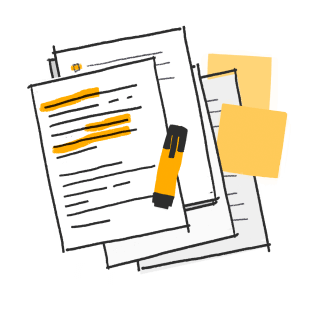Writing a Lab Report Is Easier Than You Think
How to write a lab report worries many students, especially freshmen, with a limited understanding of academic writing requirements and principles. Good news – you don’t need to get poor grades and learn on your mistakes to hone the report writing skill as our experts can assist you with this type of work, fetching you excellent scores and showing what an A-grade paper looks like.
Lab reports are indeed a hassle for many people as they possess a specific format and can’t be written like essays. In other words, if you don’t know what to write about or what sections to include, your chances to fail are high. To succeed, you either need to study much literature on lab report writing and learn the essentials quite well (which may take weeks of preparation for a single assignment) or ask experts in this niche for help.
Suppose you’re not sure where to turn for a high-quality college lab report. No need to look elsewhere! By placing an order with us, you’re always guaranteed professional formatting of your report, flawless writing and calculations (if needed), and an expert approach from the beginning to the end.
Know Your Requirements
Writing a good lab report is impossible without strict compliance with the tutor’s requirements. Always study the details of an assignment, keep them in mind at every step, and conduct a final check at the end.
Take Your Time
It’s tough to compose an excellent academic paper with fresh, original thoughts and rigorous fulfillment of all requirements without due time allocated to the task. Start working on your home task early to have some spare time for amendments and editing.
Ask for Help
Not skilled in writing lab reports? It’s always a good idea to ask for professional assistance. In our company, dozens of writers are available in 35+ academic disciplines. Their expertise in lab report composition will ensure your academic success.
How to Write an A+ College Lab Report
Those who want to try writing a lab report on their own may follow these expert tips to complete the paper excellently. First, you should have a hypothesis for testing. Once you formulate it, you’ll be able to design an experiment to test it.
Second, keep in mind that it is a scientific paper written for a science class. So, it should not look chaotic, with a rigid and clear structure evident in the paper. Start your work on a lab report with the composition of an outline (for starters, it’s good to follow the universal IMRAD formula of structuring – introduction, materials and methods, results, and discussion).
After your structure is ready and you know for sure what each section will contain, conduct an actual experiment. Document all procedures, record your raw data, and organize it in the form of charts, graphs, and tables. It will be easier to process it in such a format. Report all the procedures in the “materials and methods” section and then proceed to the analysis of data, which you’ll report in the “results” section.
Don’t forget to wrap up your findings in the concluding section. Back your inferences with what other scholars say on the subject by either supporting or juxtaposing their evidence and your experimental findings. Always refer to the lab report’s outcomes to a broader context in your subject area.
Laboratory Report Writing Do’s & Don’ts
As we already mentioned, college lab reports have a unique format and structure distinct from textual academic works, e.g., essays and research papers. Thus, the do’s and don’ts we recommend are directly connected with specifics of this assignment.
Do:
- Always include your raw data into the appendices for the supervisor to double-check any calculations or analyses if needed.
- Keep to consistent referencing (e.g., tables, charts, and graphs) in-text and the appendices not to confuse the reader.
- Make sure that your sections don’t overlap to present all data once and avoid redundancy.
- Reference all external sources to avoid plagiarism.
- Double-check the text before submission to remove any typos, syntactic errors, or stylistic inconsistencies.
- Always give textual explanations to your calculations so that even a layperson grasps your content.
- Ask for lab report help if you understand that sometimes doesn’t work out even after a series of revisions and improvements.
Don’t:
- Use bullet point lists without need.
- Focus on people. Experimental procedures are more significant. The data about what each of the researchers did looks redundantly.
- Refer to your intervention as a “lab.” Use the terms “experiment” or “test” instead.
Hire a Writer Here and Stress Less
Writing lab report assignments may be very tiring for creative people who are used to writing textual works, such as essays and research papers. Lab reports require calculations, a compilation of charts and graphs, doing some math and statistics, etc.
To get rid of the hassle and get the work done in hours (instead of long, sleepless nights), you may turn to our authors for help. Their experience with lab reports will allow them to complete your assignment with record turnaround times, giving you the peace of mind and excellent grades. A perfect combo for a busy student, isn’t it?
24/7 Online Help You Can Rely on
Why us, you might ask? Here are some benefits you’ll enjoy by trying our services.
It Is Safe
The fundamentals of any academic writing assistance are the safety and confidentiality of the service. Here we guarantee 100% safety of your funds via an encrypted payment gateway and 100% confidentiality via our strict policy of non-disclosure of personal data.
It Is Fast
Whenever you need laboratory report writing help, you’ll get it here 24/7, on weekends, holidays, and in the middle of the night. No need to worry as our authors and managers are always on standby.
It Is Refundable
In case you don’t like the lab report you receive from us, or you get it after the deadline passes, we are ready to refund the work. File a complaint to our support, explain the matter, and get your funds back – it’s 100% guaranteed.







